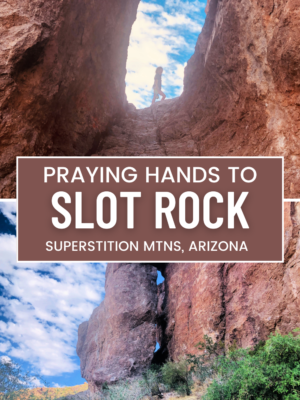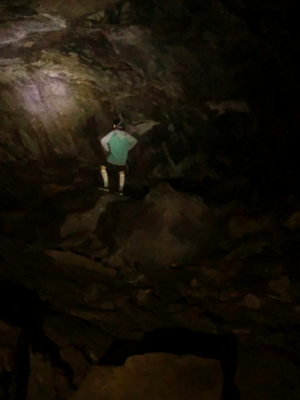
Just a few weeks ago we shared the reasons that we LOVE our CSA – in the end, it’s important to us to eat food grown by local farmers that we can trust. Farmers who opt to use natural methods to growing their produce than spraying pesticide (because believe it or not, there are MANY local farmers MAY be local but they DO still use pesticides).
Better customer awareness is required – not just in our grocery stores but for the food you are buying for your family in general.
If you aren’t too aware, there is a NEW growing practice in California that MIGHT affect you, and your family. The practice raises some pretty disturbing concerns. The story is two fold ~ while some may agree there aren’t issues with this growing practice, some have found issues with the practice and are truly concerned.
Each person can obviously determine their thoughts on the issue – and while some may say it’s nothing but merely fear mongering, it’s relatively important to understand why some organizations have greater concern than others (usually money and profits are a huge part of that).
California is suffering from a water shortage ~ and there are farmers so desperate for water in one particular irrigation district (Cawelo) that they are taking wastewater from Chevron to irrigate their crops. It’s being used to grow food that people eat: including grapes, citrus crops, pistachios, and even the oranges you love so much.
In summary, in places like Kern County, California, Chevron (Oil Company) leftover wastewater is mixed with walnut shells – which helps to extract excess oil. The water goes through treatment ponds and then is released into a canal of an 8 mile length in the Cawelo Water District where it is further diluted with fresh water.
This water supplies 90% of Kern County Farmers with their annual irrigation water.
Oil Companies are happy – because without this method, it would be expensive for them to get rid of the leftover wastewater. The farmers (not all, but MANY) love it because for them it’s a bargain: they have water for their crops in a time that the state is suffering from a huge water shortage.
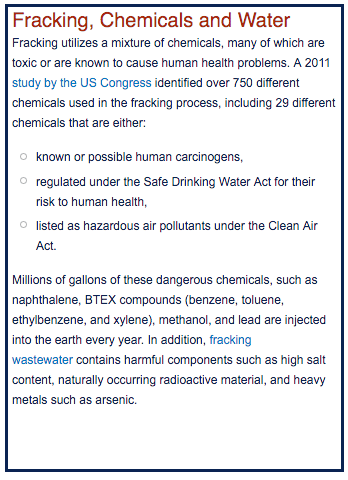
Source: CleanWaterAction.org
Fracking proponents claim it’s completely safe – in fact, the report here from the EPA claims that it has no widespread impact either.
In fact, if you do some self research, you will find a myriad of sites that claim that by talking about the dangers, we are merely using scare tactics and fear mongering people into being scared about their food. After all, everything is unsafe -right? So why even bother worrying about it?
The worrisome part of this information really comes down to the safety of your food – the adverse effects of contaminants can include everything from nausea to vomiting, headaches, rashes on the skin, respiratory ailments & more.
Scott Smith is the chief scientist for the advocacy group “Water Defense” – although they don’t necessarily regulate, their job is to register the high readings of lab analysis studies and draw attention to those studies/analysis samples. A recent lab analysis samples over a period of two years found acetone, and methylene chloride, along with oil. Methylene chloride was found at 56 parts per billion – while the EPA’s safe drinking water level is 5 parts per billion. (find that info HERE)
While some of the oil field waste may make it’s way to the roots and leaves of the plants, studies haven’t been done to determine the commercial food impact ~ can the water make it’s way into the flesh? Nobody has really studied that… yet anyways. What they do know though is that some plants can absorb toxins, yet not enough to transfer them to the flesh of the fruit.
Regulators are required, at that point, to follow up. Oddly enough, independent testing hasn’t found any chemicals to be present. But then, if you read far below, you will see that they don’t exactly “test” for any of those chemicals – only salt and acetone.
Interesting in reading more? You can study this for weeks online ~ there are some great sources of information, and videos if you truly have time to dig around.
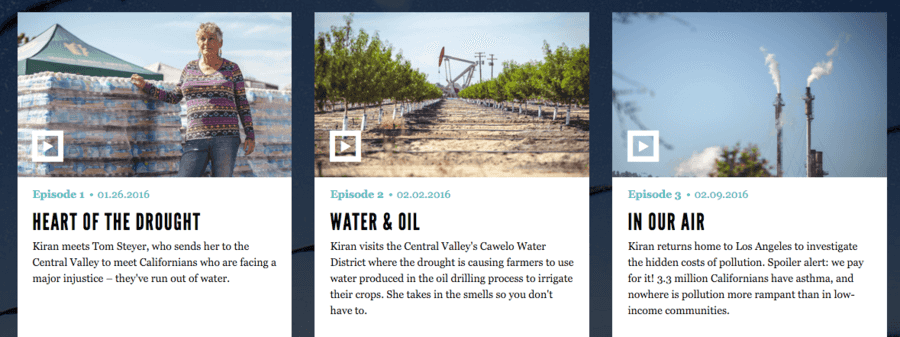
There is a 5-part series you can watch, hosted by actress & comedian Kiran Deol, who investigates impact of drought, water, and air pollution, and gas price gouging in California. It’s great to watch. … you can watch the series HERE… we have seen it.
In fact, I have watched it several times. But eventually you might ask how this affects YOU, after all.. we aren’t in California – right? We are in Arizona. Does it really matter what goes on there? (You may want to know that this does not “just” happen in California though – you can find it happening in Pennsylvania, Texas and other places on the East Coast.)
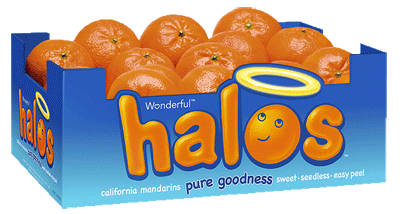
One of the biggest players in the water politics are the owners of Halos Mandarins – who isn’t familiar with those? Everyone loves them.
I first read about this last year and .. I’d be lying if I said I don’t think about this every time I see them advertised on sale. If you reference Truth or Fiction you can find some pretty great information:
Halos mandarins, formerly marketed as Cuties, are grown by Wonderful Citrus, part of the farming mega-conglomerate owned by the Beverly Hills billionaires Stewart and Lynda Resnick. The Resnicks, who also own Fiji Water, POM Wonderful, and the world’s largest pistachio and almond growing operation, are major players in California water politics.
While Wonderful Halos won’t actually come out and say they use wastewater fracking to water their Halo Mandarins, they DID address questions on their Facebook page:
Wonderful Halos is deeply committed to bringing you the highest-quality, most nutritious, and best-tasting citrus available. Our crops are irrigated with water from a variety of sources, all of which meet or exceed the standards for agricultural irrigation.
To be sure, all of our produce is continuously and rigorously tested as part of our strict quality control process and adhere to all FDA regulations and guidelines. We’re proud of the delicious, premium citrus we grow, harvest and deliver to our customers around the world.
And What does the State of California say?
According to Truth or Fiction, State officials praised oilfield water recycling as a solution to the state’s drought, and took steps last year to shore up regulation and testing, the Times reported:
Until now, government authorities have only required limited testing of recycled irrigation water, checking for naturally occurring toxins such as salts and arsenic, using decades-old monitoring standards. They haven’t screened for the range of chemicals used in modern oil production.
Surprisingly enough, testing IS done for salt and arsenic. But testing is NOT done for the chemicals used in oil production. Farmers can test crops for pests or diseases, but they don’t test them for chemicals that may have absorbed through the roots from water.
In essence, everyone expects someone else to do the testing, but in reality, nobody does the testing.
Does this Apply to Organic Crops?
Believe it or not, USDA Organic regulations do not address the use of irrigation water on Organic farms. .. nor do USDA Organic regulations require farms to perform water quality tests (Source). Irrigation water is obviously a huge loophole in a food safety program.
Organic programs do prohibit using sewage sludge based fertilizer (a product that is common in non-organic farms ) which contains pharmaceuticals, flame retardants and other chemicals.
Although Organic produce can be a great direction to take in terms of your health, sometimes supporting your local farmer is an even smarter move. Doing that in terms of joining a CSA allows you to know where your produce comes from and exactly what you are putting in your body.
In the end, will it change the way you eat? Perhaps it will, for most it won’t. Many people tend to place too much trust in what the EPA may regard as safe, and regard their opinion as the final authority on the matter – after all, everything the EPA believes to be is undisputed – right?
Bottom line for us, is that I certainly don’t want any solvents in my food. Nor will I give my money to a company with growing practices that include any risk of solvent in my food – even if the EPA “deems it safe” – my doubts like far past the EPA, and we realize that they truly have profits at stake. It all comes back to the same thought: if you don’t or can’t grow it yourself, or you don’t know the grower personally, then you can’t always trust it.

